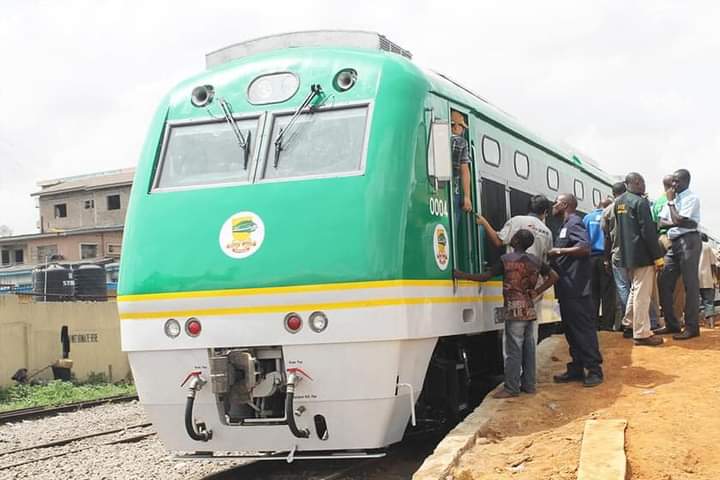Nigeria’s ambitious rail modernization drive has hit a major setback as three critical passenger train services have been suspended, casting doubts on the future of multi-billion-dollar investments in the sector.
The Warri-Itakpe Train Service is grounded. The Abuja-Kaduna Train Service is also grounded. Now, the Port Harcourt-Aba Train Service is suspended.
The Warri–Itakpe rail line, which links the South-South to the North-Central and serves both passenger and freight operations, was suspended due to operational and safety concerns. The line, commissioned in 2020, had been touted as a strategic corridor for moving goods from the ports to inland markets.
Most worrying for many Nigerians is the indefinite suspension of the Abuja-Kaduna service, once considered the flagship of the government’s rail revival project.
The route, completed with Chinese loans and inaugurated in 2016, quickly became a lifeline for thousands who abandoned the dangerous Abuja-Kaduna highway due to incessant bandit attacks.
However, the Nigerian Railway Corporation (NRC) suspended regular train services on the route following a near fatal derailment.
A March 2022 terrorist attack on the train shattered public confidence, and despite resumption, security and operational challenges have persisted.
In the South-East, the Port Harcourt-Aba service has also been grounded. The announcement was made on Friday in a brief by NRC’s Managing Director, Mr. Kayode Opeifa.
This short but vital route was expected to boost commerce in the region by providing a cheaper and faster alternative for traders and daily commuters between the two bustling cities.
The suspension of the three critical train services highlights the fragility of Nigeria’s rail system, which has gulped billions of dollars in foreign loans and government spending.
Analysts warn that without urgent intervention, the shutdowns could derail Nigeria’s broader transportation strategy, which relies heavily on rail to decongest highways, boost trade, and improve logistics for industries.
“Rail is supposed to be the backbone of Nigeria’s modern transport system,” said a transport economist in Abuja. “When services collapse this way, it signals deeper problems, ranging from poor funding for maintenance, inadequate security, and lack of operational sustainability”.
With the railway modernization projects tied to Chinese loans and other external financing, the suspensions raise concerns about Nigeria’s ability to service debts and maintain confidence among international lenders.
Traders, commuters, and logistics operators are already feeling the pinch, with increased transportation costs and renewed dependence on unsafe roads.
ALSO READ || Opeifa’s NRC and the rot in Nigeria’s rail transport system
Industry watchers say the government must move swiftly to restore services, enhance security, curb activities of vandals and develop a sustainable maintenance framework, or risk turning the rail revolution into a failed national project once again.


